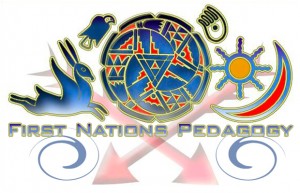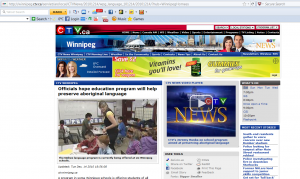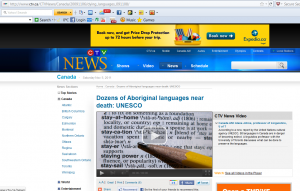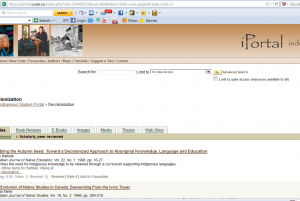http://www3.nfb.ca/enclasse/doclens/visau/index.php?mode=home&language=english
A site displaying a number of documentary films by and about Aboriginal peoples. There are lots of interesting films to view here, organized around themes. There is also a section on how to use the films in classrooms, as well as a rationale surrounding the collection. It also includes a lesson plan on an idea of how to use the films in class. The collection is large and diverse, and is conveniently organized.
Emily



